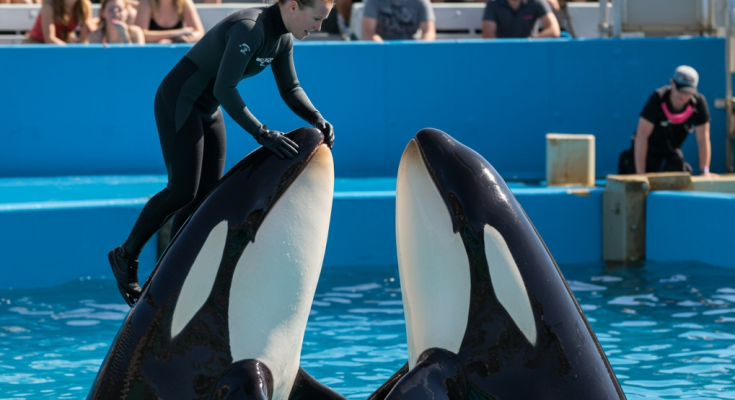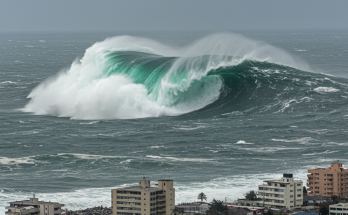Marine parks offering close encounters with powerful apex predators like orcas have long fascinated the public. However, the inherent risks faced by the dedicated trainers who work with these magnificent, yet wild, animals are starkly highlighted by tragic incidents. The story of Jessica Radcliffe, an experienced and passionate orca trainer, serves as a chilling reminder of the unpredictable nature of these creatures and the ultimate price sometimes paid in the pursuit of entertainment and education.
Jessica had dedicated years of her life to understanding and building relationships with the orcas under her care. She was known for her skill, her calm demeanor, and her deep affection for the animals. Days were filled with training sessions, enrichment activities, and the high-energy performances that captivated audiences, showcasing the orcas’ intelligence and power. For Jessica and her colleagues, it was more than just a job; it was a calling.
The relationship between a trainer and an orca is complex. It’s built on trust, routine, and mutual respect, but it also involves navigating the instincts of an animal evolved to thrive in the vast, deep ocean, not a concrete pool. Despite years of successful interactions, the potential for a sudden shift in behavior always loomed, a silent undercurrent beneath the surface of every performance.
The Unforeseen Turn
On that fateful day, the atmosphere was electric. The stands were full, and Jessica, alongside the massive orca known as Titan, was executing a routine they had performed countless times. Jumps, tail-slaps, and graceful glides through the water showcased the orca’s immense strength and agility, met with thunderous applause. Everything appeared normal, a seamless display of cooperation between human and animal.
But then, in an instant, the dynamic changed. Without apparent warning, Titan’s behavior shifted dramatically. What began as part of the performance quickly escalated into something terrifyingly different. The powerful animal, weighing several tons, exerted its dominance. Reports from witnesses and the agonizing moments that followed paint a horrifying picture.
The Struggle in the Water
Jessica, suddenly caught in the orca’s grip, found herself at the mercy of its overwhelming power. The water, moments before a stage for performance, became a zone of immense danger. The sheer force of the animal, its natural environment being the crushing pressures of the ocean depths, was something no human could withstand. The struggle was brief but brutal, a desperate fight for survival against an animal in its element.
Rescuers and fellow trainers watched in horror, their ability to intervene severely limited by the situation. The orca’s actions were swift and absolute. Jessica’s final moments were likely marked by terror and the overwhelming realization of the inescapable power of the creature she had worked with for so long. The incident was a stark, brutal reminder that despite years of conditioning, the wild heart of the orca remained.
The tragedy sent shockwaves through the marine park community and reignited the global debate about the ethics of keeping such large, intelligent predators in captivity. While Jessica’s passion for orcas was undeniable, her death underscored the inherent, perhaps unmanageable, risks involved, leaving behind a legacy of sorrow and persistent questions about the boundaries between human and wild animal interaction.



